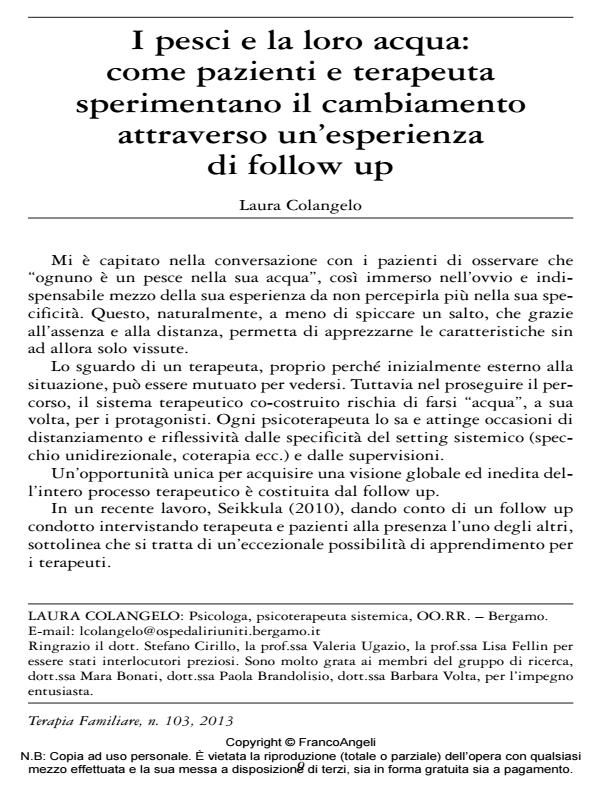I pesci e la loro acqua: come pazienti e terapeuta sperimentano il cambiamento attraverso un’esperienza di follow up
Journal title TERAPIA FAMILIARE
Author/s Laura Colangelo
Publishing Year 2014 Issue 2013/103
Language Italian Pages 23 P. 9-31 File size 279 KB
DOI 10.3280/TF2013-103002
DOI is like a bar code for intellectual property: to have more infomation
click here
Below, you can see the article first page
If you want to buy this article in PDF format, you can do it, following the instructions to buy download credits

FrancoAngeli is member of Publishers International Linking Association, Inc (PILA), a not-for-profit association which run the CrossRef service enabling links to and from online scholarly content.
The author presents a qualitative follow up study on 8 systemic-oriented individual, marital and family psychotherapies. Patients and their therapist were interviewed separately in order to compare their ideas on outcomes and helpful factors.This paper focuses only on the outcomes identified by patients and therapist. The author maintains that the follow up is experienced according to a pattern which connects it to the previous negotiation process of terminating therapy and not as a separate and independent evaluation context. She argues that the follow up must be coherent with the systemic-constructionist perspective on change and should not reposition the person as a patient. These findings support the hypothesis that clients and therapist tend to identify the same important outcomes in psychotherapy, although the convergence on outcomes is stronger than convergence on explanations of how they are achieved. Though, patients’ idea of change results wider and more multifactorial than expected.
Keywords: Follow up, change, outcomes, patients and therapist’s perspective, qualitative research, IPA.
Laura Colangelo, I pesci e la loro acqua: come pazienti e terapeuta sperimentano il cambiamento attraverso un’esperienza di follow up in "TERAPIA FAMILIARE" 103/2013, pp 9-31, DOI: 10.3280/TF2013-103002